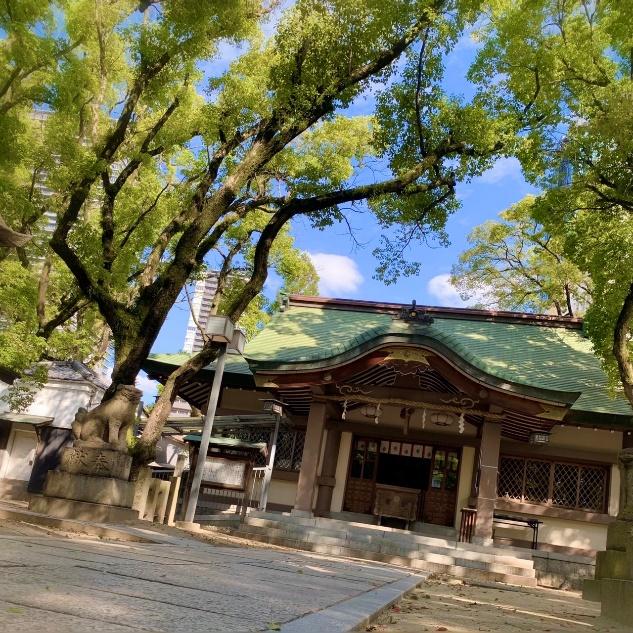Hello,
My name is Sayaka and I am the editor of this series of articles. After my career as a preschool teacher, I became a certified yoga teacher and am currently working as a freelancer.
As a teacher of cyclic meditation, which is also practiced by the Prime Minister of India, I am deepening my learning of mindfulness and meditation every day. I am also interested in mental and physical healing using the "five senses," which are associated with mindfulness and yoga, among other things.
I am writing today for the first time for 供TOMO blog. I hope you will enjoy my posts, and nice to meet you!
Have you ever heard the term "mindfulness"?
Simply explained, it is a meditation technique that has attracted attention for its ability to stabilize the body and mind.
To begin this new series which will be composed of 3 articles focused on mindfulness and shrines, I chose to give you some advice.

What is mindfulness?
Without context, it might be difficult to understand what this expression refers to.
Mindfulness has its roots in Buddhist meditation practices. In recent years, it has also been used in medicine to help prevent depression and reduce pain. It is also attracting interest from companies and athletes for its beneficial effects on the body and mind.
How do you do mindfulness?
Mindfulness is about "recognizing your experience (your environment and your own reactions) in real time, accepting it as it is and letting it go, without evaluation or judgment." You have to be aware or conscious of something.
※ I will explain this process in more detail in the second article.
What are the benefits of mindfulness?
Being in a state of mindfulness (i.e., being able to observe our experiences objectively, accepting them, savoring them, and letting them go without evaluation or judgment) brings benefits in all aspects of our daily lives. Here are a few of them:
1) You have a better concentration and you are more efficient in your tasks
When you are able to observe your experience objectively (i.e., with a bird's eye view), you will be able to notice when you lose focus and bring your mind back to a state of concentration. By repeating this process, you will be able to stay focused.
2) Mindfulness relieve stress and worries to improve your physical and mental health
Mindfulness introspection helps you to identify your worries, and helps you to feel a deep sense of security, as if someone was watching over you.
3) You can develop compassion and establish rich human relationships
By accepting yourself better, you are better able to be tolerant of others.
4) Experience joy in life on a daily basis
Mindfulness helps us to look at the many things we take for granted in a new way, and helps us to naturally feel gratitude and joy for the abundance that is already here and around us.
Why mindfulness?
People today are busy with work, family, relationships, worries about the future, and these days, fear of infectious diseases. If you live in a state of fear and anxiety for a long period of time, your mind will be stressed, your brain will get tired and your body will get sick.
Mindfulness is a great way to prevent this from happening to you!
Mindfulness and food: meditating with food

Mindfulness does not require any particular predisposition: it can be practiced by anyone, anytime, anywhere! It is a great way to enrich your mind.
Let's take an example: what do you pay attention to when you eat? To do the dishes that follow? Your shower? Finishing the tasks you have left to do? If you think about it, your mind is focused on the future or the past, but not the present.
In this example, by focusing on the present, you feel the taste, the warmth, the texture of your food, and you can feel excitement, gratitude and joy for even the simplest of meals. You feel like a pure child full of life, fully enjoying the moment.
This feeling that arises when we are aware of the present moment is a gift that comes to us unconditionally, and receiving this gift enriches all aspects of our lives.
Summary and announcement of upcoming articles
Mindfulness can enrich not only our bodies and minds, but also our relationships and our lives. For beginners, starting with "food meditation" and feeling what you eat is a great first approach.
********
Announcement of the next articles:
Part 2: "Basic Mindfulness Techniques and Tips"
Part 3: "What is the best way to visit a shrine to heal your mind and body?"
I am looking forward to writing to you again!
★ Text and images: Sayaka
If you liked this article, feel free to share it on Facebook, Twitter and Pinterest ! Thank you !
********
Meditate with peace and serenity with 供TOMO Café Genshin.
Café Genshin is an organic brown rice coffee made from Isehikari rice. Naturally caffeine-free and gluten-free, it's the perfect drink for your meditation session or for intermittent fasting enthusiasts.




